Considering the rising tensions between the two countries, fears of another major atrocity against Haitians in the Dominican Republic are increasingly valid
1937 marked a grim milestone in the annals of history. Under the sinister directives of Dominican president Rafael Trujillo, an unthinkable massacre unfolded at the Haiti-Dominican Republic border.
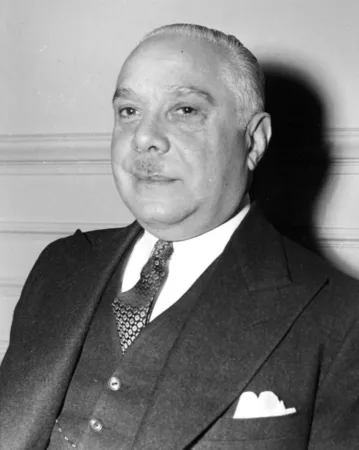
Portrait of the Dominican dictator Rafael Leonidas Trujillo Molina. | © AGN
Trujillo’s objective was clear — to stave off what he termed the « Haitianization » of the Dominican side of the border. The massacre that ensued saw upwards of 20,000 Haitians and Dominicans of Haitian descent ruthlessly killed.
Trujillo’s attempt to « whiten » his side of the border led to the use of a linguistic test: individuals were required to pronounce the word « perejil » (parsley in Spanish). Many of those who pronounced it in a distinctly Haitian accent were killed. This tragic episode, now infamously known as the “Parsley Massacre”, is a chilling reminder of the dangers of unchecked nationalism and racism.
Trujillo’s objective was clear — to stave off what he termed the « Haitianization » of the Dominican side of the border.
Currently, a water dispute over the Dajabón River, also known as the Massacre River, is escalating tensions between Haiti and the Dominican Republic. This river, which forms a natural divide between the two nations’ northern parts, is historically significant due to its association with the tragic Parsley Massacre, where countless victims met their end in its vicinity.
In September 2023, a group of Haitians resumed the construction of a canal to draw water from the river, aiming to provide irrigation for local Haitian farmers. This represents the first Haitian attempt to harness the river. However, the Dominican Republic, having built over 10 prior canals from the river, opposes the Haitian initiative, claiming it violates existing agreements. Reacting to the Haitians’ determination to proceed with the project, the Dominican president, Luis Abinader, took a severe measure, shutting down all borders with Haiti along with the widespread deportation of Haitians.
Lire aussi : Photos | Ouanaminthe : tout en ébullition, tous unis pour finaliser le canal
Considering the rising tensions between the two countries, fears of another major atrocity against Haitians in the Dominican Republic are increasingly valid. The present discord has reawakened deep-seated animosities, revealing age-old resentments between two nations bound by geography and history. Hostility directed towards Haitians in the Dominican Republic has escalated in recent times.
Over the past few years, mass deportations, often executed with an overt indifference to human rights, have surfaced repeatedly. Instances of Haitian communities facing threats and forced evictions, often with Dominican local authorities observing passively, have grown in frequency.
The present discord has reawakened deep-seated animosities, revealing age-old resentments between two nations bound by geography and history. Hostility directed towards Haitians in the Dominican Republic has escalated in recent times.
There are even unsettling reports of pregnant Haitian women being removed from hospitals to be deported. Such grave violations, rooted in deep-seated racism and colorism, are consistently highlighted in the Human Rights reports from the U.S. Department of State. It was startling to witness the Dominican president, on a global platform in New York, deny the existence of racism and colorism in his country. His assertion that because 85% of the Dominican population is of mixed heritage, such issues don’t exist, is both naive and misleading.
Read also : Renting a house in the Dominican Republic, a real challenge for Haitians
The insidious nature of modern massacres is their alarming speed. Often, before the world can even grasp the magnitude of the atrocity, it’s usually too late. Historical incidents like the Rwanda Genocide underscore this harsh reality. In the age of social media, misinformation can spread quickly, potentially igniting violent confrontations at an unprecedented speed. This threat becomes even more pronounced when politicians leverage divisive emotions for their personal advantage.
A prevalent tactic used by Dominican politicians is to unfairly blame Haitians for the country’s challenges, rather than acknowledging their own shortcomings. Lately, President Luis Abinader has advanced the deceptive idea that Haiti is a liability for the Dominican Republic, a sentiment that many Dominicans have echoed. However, facts indicate that Haiti stands as a crucial trading partner for the Dominican Republic, instead of merely receiving Dominican aid.
Instances of Haitian communities facing threats and forced evictions, often with Dominican local authorities observing passively, have grown in frequency.
The pressing question is: In the face of a surging wave of animosity and the reopening of historical scars, how can we prevent another tragedy?
The strength of a nation lies in its people’s ability to stand up against hate. For instance, here’s how the U.S. has consistently demonstrated a firm resistance to authoritarianism: For every American advocating xenophobic or racist ideologies, there is always a multitude of others poised to contest such viewpoints using a range of strategies, even if it entails risking their very lives. This resilience stems from a deep-seated belief in American values of diversity and the foundational idea that the U.S. is a land of immigrants.
Read also : Why does the gold mine operation on the Haiti-DR border cause fear?
I’m convinced that for every individual driven by prejudice, there are countless patriots within the Dominican society committed to preserving their nation’s values. However, now, narratives of anti-Haitian sentiment seem to prevail, especially on social media platforms. I urge the Dominican civil society to elevate the call for harmony and do more to drown out the voices of hate and prejudice.
We must not wait for another tragedy to underscore the urgency of taking a stand against bigotry. The obligation to place love above prejudice rests in the hands of Dominican patriots who hold true to their country’s ideals, and the moment to act is now.
By Boaz Anglade, a Haitian development economist working as a consultant in international development. He holds a Ph. D. in applied economics from the University of Florida.
© Image de couverture : Illustration of the Perejil Massaccre. KHARLA CEBALLOS / LD.
Watch our special report published in January 2022 on the start of the canal initiative related to the Massacre River:
Stay in touch with AyiboPost through :
► Our Telegram canal : click here
► Our WhatsApp Community : click here

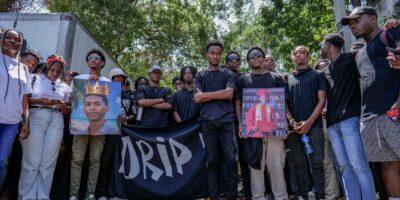
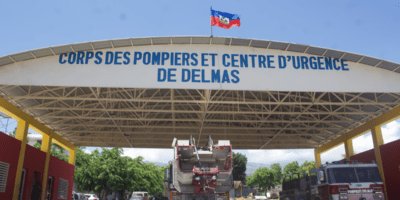
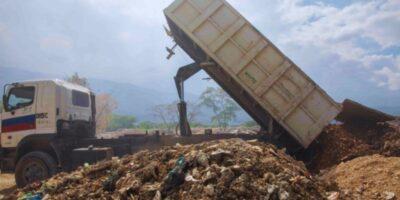
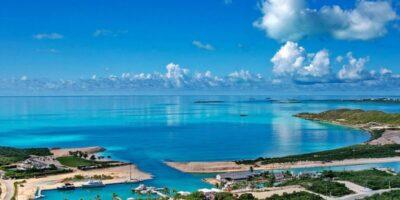

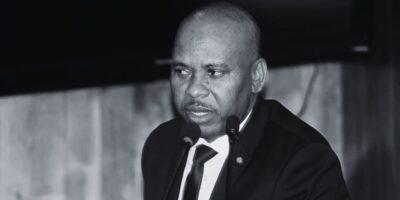
Comments